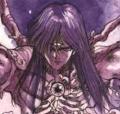| Author |
Message |
 |
|
|
 |
|
Advert
|
Forum adverts like this one are shown to any user who is not logged in. Join us by filling out a tiny 3 field form and you will get your own, free, dakka user account which gives a good range of benefits to you:
- No adverts like this in the forums anymore.
- Times and dates in your local timezone.
- Full tracking of what you have read so you can skip to your first unread post, easily see what has changed since you last logged in, and easily see what is new at a glance.
- Email notifications for threads you want to watch closely.
- Being a part of the oldest wargaming community on the net.
If you are already a member then feel free to login now. |
|
 |
![[Post New]](/s/i/i.gif) 2018/02/02 20:33:17
Subject: Re:Blade Runner 2049 - post movie release discussion starts pg 5
|
 |

[MOD]
Solahma
|
Copypaste Denis Villeneuve’s “Blade Runner 2049” pulls a bait and switch so subtle that viewers may not even notice it after it’s complete. It appears that we are following replicant Agent K’s (Ryan Gosling) journey into what it means to be human, but a different model of cybernetic evolution has an equally engaging arc. In fact, no character in “Blade Runner 2049” is more relatably human than Luv.
Played by Sylvia Hoeks in alternating currents of ice and fire, Luv is the echo of Rutger Hauer’s Roy Batty from the original "Blade Runner." Like Roy, Luv is a synthetic replicant, and a villain designed to magnify the central concerns of what it means to be human on a grand canvas. In 1982, Roy gave a vengeful sermon on the inevitable mortality of all life, confronting us with the fact we all must die. In turn, Luv confronts us with the deep conflicts of character that we all possess and the society that reinforces them.
She is Niander Wallace’s (Jared Leto) right hand, a henchwoman designed for obedience and matter-of-fact control. In sharp foil to Luv, K is a lost soul trapped in cyberpunk melancholy, a blade runner on a quest for meaning amidst absent identities and a girlfriend that’s more hologram than human. But while K represents our desire for change and catharsis, Luv is more vividly human. For her, catharsis and change comes hard if it comes at all, an arc that is more intimately human than K’s fairy tale of self-discovery.
Look to how Wallace, a figurative Pharaoh who lives inside a massive shadowed Pyramid, schemes to enslave all replicant life and their potential offspring, treating them like the Hebrews in Genesis-built civilizations off the “back of a disposable workforce.” And yet, as she simply must follow the orders of Wallace, she feels love for her own species. She weeps when they suffer and is heartbroken when they die, but is incapable of acting to stop either. Like so many people who feel helpless in today’s society, Luv is a prisoner to her programming.
Luv’s first very-human tears come as she witnesses a murder. Wallace butchers a newborn replicant, a short-haired woman covered in an ambiguous yellow fluid, scared, trembling and useless to Wallace because she (like all replicants) is barren. She cannot give birth to new replicants. “Dead space between the stars,” he remarks with terrifying indifference. Wallace uses a knife to slice open her gut and womb, the way you might slaughter livestock. Tears stream down Luv’s face. To Luv, this replicant woman is her family, her kin, and she stands in motionless quiet agony watching this murder. To intervene, to save her, is a barrier she cannot transcend, but she still experiences the human feelings of pain and empathy. Her tears come seconds before the violent display takes place, in anticipation but clearly not surprise. This is not the first time Luv has endured this sight, and it’s arguable that bearing witness to such horror has formed the emotional human side of an inhuman creation.
Halfway through the film, Luv cries a second time. She learns a child was murdered. “Blade Runner 2049” is centrally about a baby born of a replicant mother and (likely?) replicant father, and this child embodies a dangerous empowerment for replicant-kind. It isn’t until later that Luv realizes this news may not be the truth. However, this miracle child, if found, would symbolize hope and change and love to all synthetic life. Hoeks plays the scene against Robin Wright’s Lieutenant Joshi with a kaleidoscope of emotion, a whirlwind of maternal rage and heartbreak bursting through the veneer of soccer-mom politeness. Seconds before slicing her open, Luv says to Joshi: “In the face of the fabulous new, your only thought is to kill it ... out of fear of great change.” Joshi represents everything Luv despises, and what’s more human than rebellion against systemic enslavement? Fascinatingly, these killings are political as well as personal. Both of her cold-blooded assassinations are to human police officers who showed racist attitudes towards replicants. First, she kills Coco who called Rachel a “skinjob” in front of K, offering a meager apology to him for the offense. And now Joshi, who Luv laterally gut-stabs as an echo of Wallace’s murder of the newborn replicant.
Therein lies the tragedy of Luv’s character. As shown through these two experiences, no other main character shares Luv’s empathy. We don’t see that kind of behavior anywhere else in the movie. We don’t see it in K’s Google Home girlfriend Joi with her questionable agency, and not in Wallace who may have saved the planet but preaches slavery (and more quietly, murder). We certainly don’t see it Freysa, head of the replicant revolution who conspires to have Deckard killed (and to emphasize her dubious trustworthiness, she shares many traits with Wallace: blindness, black Eastern-inspired robes, and a lair that mirrors the reflected water-y light of Wallace’s womb-like pyramid).
We also can’t find Luv’s empathy for replicants with the ostensible hero of the story. As a Blade Runner, K is a programmed hitman tasked with murdering his own species to take home a bonus. For most of the movie, he destroys his own species. Despite this, Luv feels a connection with him––once they meet she flirts, and the last time they meet she gives a kiss. Three times she could kill K and chooses not to. But while K embodies our innate desire to be special, loved and wanted, he ultimately uses the power of self-belief to overpower his baseline programming and evolve. Luv does not and cannot. Instead, like Tony Soprano or Detective McNulty, Luv is characterized by her inability to change. Hoeks worked very hard with Villeneuve to capture the poignant dissonance that we see in her, saying, “It was important for myself to be as human as possible ... crying revealed a sense of humanity, a sense of longing, a sense of her pain and her conflict.”
Hoeks is devastating in the role, and the tension between who Luv wants to be and who she is makes her a powerful parallel to humanity. Psychology tells us that we all want to be different—more moral, more honest, more loyal. And biology tells us that problems with agency, freedom and identity start early, not late. Who you are is an intricate chess game between nature and nurture; like Luv, we are programmed first, conditioned later. These are the central ideas of “Blade Runner” and “Blade Runner 2049,” and in fact, the way famed behavioral biologist Robert Sapolsky of Stanford University characterizes humanity almost sounds like the plot of “Blade Runner” itself. He believes killers and thieves are nothing more than the equivalent of a BMW with bad brakes on the highway. An unambiguous danger that must be stopped, but to zero fault of its own––not unlike Deckard hunting down Roy, Leon, and Priss. Sapolsky goes one step further. He believes all behavior works exactly the same, saying the single most important question to answer is to accept that there is no free will, only the proverbial 1s and 0s of programming and conditioning.
Luv’s journey is about freedom, free will, what it means to be alive, and what it means be conscious. And “Blade Runner 2049” asks these questions without giving easy answers. We as a society still barely understand these mysteries. Famed philosopher and cognitive scientist David Chalmers himself has long lamented our lack of understanding of these issues, going as far to write in The Conscious Mind: In Search of a Fundamental Theory, “Consciousness is the biggest mystery. It may be the largest outstanding obstacle in our quest for a scientific understanding of the universe.” Chalmers and Sapolsky may both be famous for having crazy hair, but their radical ideas are at the heart of what the “Blade Runner” series is about and brought to life through Luv, ruminating on our lack of self-understanding as a species. “Blade Runner 2049” screenwriter Michael Green said K’s journey is to “ascend,” but humanity can’t start to ascend if we first don’t understand the mysteries of what make us who we are as a society.
In the climax of “Blade Runner 2049,” there is a reckoning of self-understanding. Two replicants fight for the same cause: to save and protect a child that is the savior of their species. By chance but not choice, one of them has broken the bonds of programming, the other has not. Submerged in murky oceanic waters, a metaphor for the subconscious, they confront who they really are and fight. On one hand, K’s implanted memories and experiences make him as much Rachel and Deckard’s child as their biological daughter Ana. He is an adopted son, fighting for the freedom of a father and sister, martyring himself for family. But on the other, it is Luv, not K, who is the perfect tragic symbol for humanity. She is the nucleus, the binding agent that allows these philosophical and academic ideas of “Blade Runner 2049” to deeply resonate. She is a being whose intentions are often good but trapped inside of systems of class, race, nature, nurture, programming and consciousness to stay unable to evolve. Agent K may represent our hope for change but Luv represents our reality of stasis. Luv did not choose her fate. But then again, who does?
|
|
This message was edited 2 times. Last update was at 2018/02/02 20:34:34
|
|
|
 |
 |
![[Post New]](/s/i/i.gif) 2018/02/11 05:58:14
Subject: Blade Runner 2049 - post movie release discussion starts pg 5
|
 |

Ship's Officer
|
I think Luv is still my favorite character in the movie. It's a shame they cut the scene of her piloting her spinner (the coolest looking one they designed). Plus the apparently violent scenes they cut from the film. In the third act I kind of felt she became more one dimensional but it is K's story first and everyone else came last, including her.
But in other news, Alcon Entertainment had layoffs due to the movie tanking at the box office. Johann Johannsson passed away. And Villeneuve said he probably won't ever make a movie like this one again in his own words “When you’re working on a film you’re in a bubble, and it was only when I came out that I realized we had made a monster. I won’t do it again.”
So take from that what you will I personally hope this doesn't get to his head. I'd hate to see him pursue more conventional film-making in order to please the general audiences. I will say I believe no one else is more qualified to win the best cinematography oscar than Roger Deakins. I'll watch it but if he doesn't win i'm turning it off and will probably never watch that garbage again.
|
|
|
|
 |
 |
![[Post New]](/s/i/i.gif) 2018/02/11 06:13:14
Subject: Blade Runner 2049 - post movie release discussion starts pg 5
|
 |

[MOD]
Solahma
|
I'd love to know more about what he meant.
|
|
|
|
 |
 |
![[Post New]](/s/i/i.gif) 2018/02/11 06:24:27
Subject: Re:Blade Runner 2049 - post movie release discussion starts pg 5
|
 |

Ship's Officer
|
http://www.nme.com/news/film/blade-runner-2049-director-says-made-monster-sci-fi-sequel-2236931
Well this is the source, not much else to see. Aside from some questionable Ridley Scott comment. BR is a hard sell to general audiences from the get go, hopefully whatever he does with Dune turns out good. It would suck if that project fell apart.
|
|
|
|
 |
 |
![[Post New]](/s/i/i.gif) 2018/02/11 06:30:27
Subject: Blade Runner 2049 - post movie release discussion starts pg 5
|
 |

[MOD]
Solahma
|
I'm sorry that BR2049 did poorly but I'd rather have a memorable flop than a forgettable hit or, more likely, a forgettable flop.
|
|
|
|
 |
 |
![[Post New]](/s/i/i.gif) 2018/02/13 22:46:40
Subject: Blade Runner 2049 - post movie release discussion starts pg 5
|
 |

Wicked Warp Spider
|
 Manchu wrote: Manchu wrote:I'm sorry that BR2049 did poorly but I'd rather have a memorable flop than a forgettable hit or, more likely, a forgettable flop.
The problem is, it will be less likely this kind of movies will be funded.
|
Generic characters disappearing? Elite units of your army losing options and customizations? No longer finding that motivation to convert?
Your army could suffer Post-Chapterhouse Stress Disorder (PCSD)! If you think that your army is suffering one or more of the aforementioned symptoms, call us at 789-666-1982 for a quick diagnosis! |
|
|
 |
 |
![[Post New]](/s/i/i.gif) 2018/02/14 01:40:25
Subject: Blade Runner 2049 - post movie release discussion starts pg 5
|
 |

Fixture of Dakka
Kamloops, BC
|
 Kaiyanwang wrote: Kaiyanwang wrote: Manchu wrote: Manchu wrote:I'm sorry that BR2049 did poorly but I'd rather have a memorable flop than a forgettable hit or, more likely, a forgettable flop.
The problem is, it will be less likely this kind of movies will be funded.
Don't these movies rarely get funded anyway (high budget, high brow sci fi)?
|
|
|
 |
 |
![[Post New]](/s/i/i.gif) 2018/02/14 08:51:50
Subject: Blade Runner 2049 - post movie release discussion starts pg 5
|
 |

Assassin with Black Lotus Poison
|
 Cheesecat wrote: Cheesecat wrote: Kaiyanwang wrote: Kaiyanwang wrote: Manchu wrote: Manchu wrote:I'm sorry that BR2049 did poorly but I'd rather have a memorable flop than a forgettable hit or, more likely, a forgettable flop.
The problem is, it will be less likely this kind of movies will be funded.
Don't these movies rarely get funded anyway (high budget, high brow sci fi)?
Eh, it depends. Interstellar did and did well. Though that was more high-brow in its development rather than its presentation, themes and story.
|
|
This message was edited 1 time. Last update was at 2018/02/14 08:56:18
The Laws of Thermodynamics:
1) You cannot win. 2) You cannot break even. 3) You cannot stop playing the game.
Colonel Flagg wrote:You think you're real smart. But you're not smart; you're dumb. Very dumb. But you've met your match in me.
|
|
|
 |
 |
![[Post New]](/s/i/i.gif) 2018/02/16 23:32:51
Subject: Blade Runner 2049 - post movie release discussion starts pg 5
|
 |

Longtime Dakkanaut
|
 A Town Called Malus wrote: A Town Called Malus wrote:Eh, it depends. Interstellar did and did well.
Though that was more high-brow in its development rather than its presentation, themes and story.
Not to mention it was riding high on the crest of Christopher Nolan's golden boy wave at the time.
|
|
|
 |
 |
![[Post New]](/s/i/i.gif) 2018/02/19 15:29:45
Subject: Blade Runner 2049 - post movie release discussion starts pg 5
|
 |

Incorporating Wet-Blending
|
GoatboyBeta wrote: A Town Called Malus wrote: A Town Called Malus wrote:Eh, it depends. Interstellar did and did well.
Though that was more high-brow in its development rather than its presentation, themes and story.
Not to mention it was riding high on the crest of Christopher Nolan's golden boy wave at the time.
It also had some very good talent to push an otherwise dull movie. Really, it was kind of just a pretentious Armageddon. Both made lots of money, though, which what the studios look at.
|
-James
|
|
|
 |
 |
![[Post New]](/s/i/i.gif) 2018/02/19 15:53:12
Subject: Blade Runner 2049 - post movie release discussion starts pg 5
|
 |

Wicked Warp Spider
|
 A Town Called Malus wrote: A Town Called Malus wrote: Cheesecat wrote: Cheesecat wrote: Kaiyanwang wrote: Kaiyanwang wrote: Manchu wrote: Manchu wrote:I'm sorry that BR2049 did poorly but I'd rather have a memorable flop than a forgettable hit or, more likely, a forgettable flop.
The problem is, it will be less likely this kind of movies will be funded.
Don't these movies rarely get funded anyway (high budget, high brow sci fi)?
Eh, it depends. Interstellar did and did well.
Though that was more high-brow in its development rather than its presentation, themes and story.
Good point. Probably Interstellar fell in a good spot. Also, interestingly is 6 minutes longer than 2049.
|
Generic characters disappearing? Elite units of your army losing options and customizations? No longer finding that motivation to convert?
Your army could suffer Post-Chapterhouse Stress Disorder (PCSD)! If you think that your army is suffering one or more of the aforementioned symptoms, call us at 789-666-1982 for a quick diagnosis! |
|
|
 |
 |
![[Post New]](/s/i/i.gif) 2018/02/19 19:39:10
Subject: Blade Runner 2049 - post movie release discussion starts pg 5
|
 |

[MOD]
Solahma
|
Bladerunner was also a flop in 1982 but here we are talking about BR2049. A movie being a flop is not necessarily going to kill its brand's reputation in terms of "producability." I predict BR2049 will go on to have a long life in terms of people discussing it and being influenced by it artistically and intellectually.
|
|
|
|
 |
 |
![[Post New]](/s/i/i.gif) 2018/03/05 10:51:36
Subject: Blade Runner 2049 - post movie release discussion starts pg 5
|
 |

Yu Jing Martial Arts Ninja
North Wales
|
Best Visual Effects and Best Cinematography.
That's two Oscars.
Now, normally I don't give a monkey's about Oscars, but...
Suck it, The Last Jedi!
|
|
|
 |
 |
![[Post New]](/s/i/i.gif) 2018/03/05 11:54:30
Subject: Blade Runner 2049 - post movie release discussion starts pg 5
|
 |

The Marine Standing Behind Marneus Calgar
|
 Chillreaper wrote: Chillreaper wrote:Best Visual Effects and Best Cinematography.
That's two Oscars.
Now, normally I don't give a monkey's about Oscars, but...
Suck it, The Last Jedi!
Very good to hear. I don’t follow the Oscars myself, but recognition like this might make similar films more viable in Hollywood. And we need more films like this.
|
|
|
|
 |
 |
![[Post New]](/s/i/i.gif) 2018/03/05 17:04:49
Subject: Blade Runner 2049 - post movie release discussion starts pg 5
|
 |

Fixture of Dakka
|
I did finally see it recently. It didn't quite wow me like the original, in a large part because the movie world felt less lived in. Beautiful film, but nothing really sold me on the world the way the market chase did in the original. Likewise, I really liked the measured pace and the way it let you pay attention to the scenery and pick out clues in a thoughtful manner, but the movie is still a little too long. It's not the kind of too long that demands cutting entire scenes, but just lots of bits (walking to the furnace to find the horse is probably the biggest one) that could have a minute or so trimmed.
As a follow up to one of my favorite films in one of the most underused nerd setting styles, its a huge triumph and I was thrilled to see it get a couple well deserved Oscars.
|
|
|
 |
 |
|
|
|